There are various reasons why Play Store won’t open, load, or download apps, including an outdated Play Store version, poor internet connectivity, cache and data issues, Google Play Services errors, or even a device’s software malfunction.
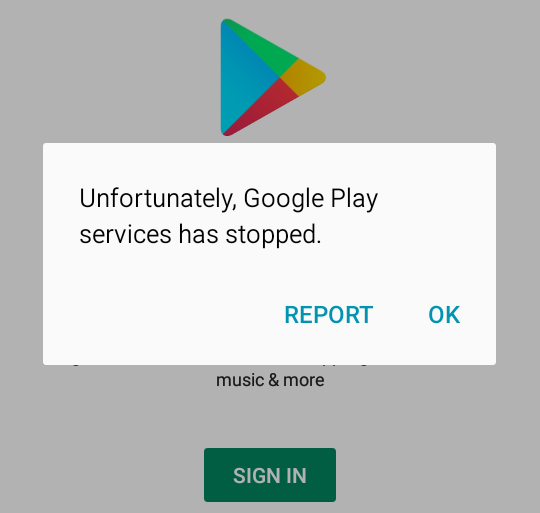
In this article, we will guide you through the troubleshooting steps that can help resolve this issue and fix Play Store errors. So, let’s dive in and get your Play Store up and running again!
1. Check your Internet Connection
Having a strong internet connection is essential for the proper functioning of the Google Play Store. If you’re experiencing issues with the Play Store, one of the first things you should check is your internet connection. Ensure that you’re connected to a strong Wi-Fi network, if possible, as this will provide a more stable and faster connection.
If you cannot connect to a Wi-Fi network, ensure that your mobile data connection is strong enough to support app downloads. This requires checking that you have a good signal and that you are not experiencing any network congestion.
Once you’ve confirmed that your internet connection is strong, try downloading the app again. If the Play Store still won’t download or load apps, proceed to the next troubleshooting step.
2. Check Your Device Storage
Running out of storage space can often be the culprit behind the Play Store’s inability to download and install apps. If your device is low on space, it can cause issues with the Play Store and prevent apps from downloading or updating.
To check if storage space is a problem, look for notifications that indicate low storage space on your device. You can also check the available space on your device manually by going to Settings > Storage.
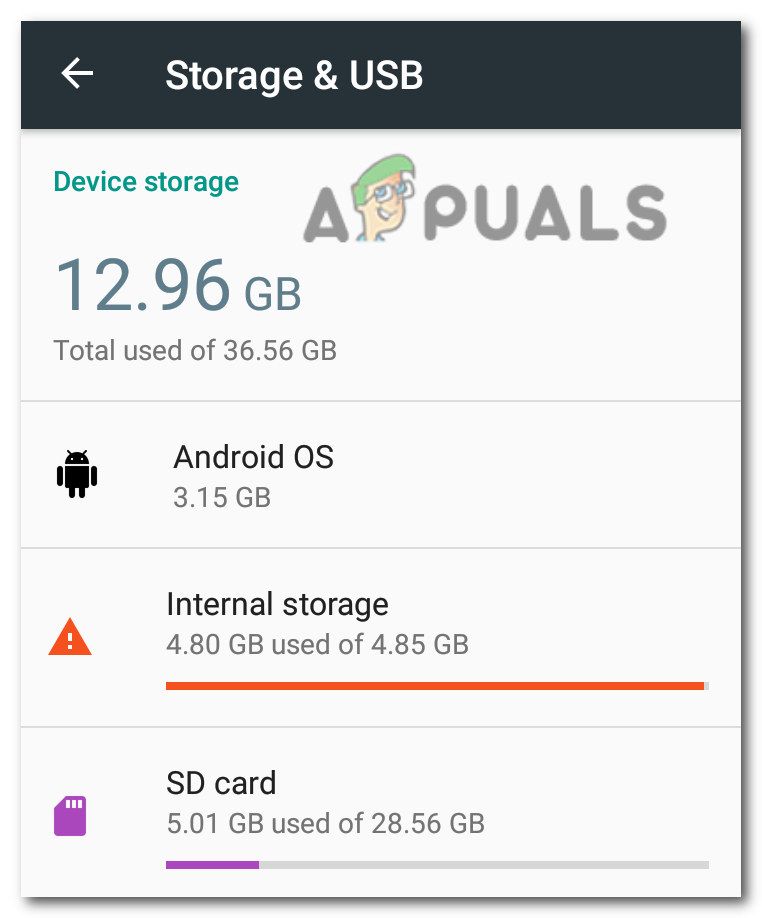
If you notice that you have less than 1 GB of storage space available on your device, it is time to free up some space. You can start by uninstalling unused apps, clearing cache and data from apps that take up a lot of space, or moving photos and videos to an external storage device or cloud storage.
Once you have freed up enough space on your device, try downloading the app again from the Play Store. If the issue persists, move on to the next troubleshooting step. However, it is important to regularly monitor your device’s storage space to avoid running into similar issues in the future.
3. Check for Software Update
Another possible solution to the Play Store not opening, loading, or downloading apps is to check for Android system updates. Updating your device’s software to the latest version can help fix any bugs or issues that may be affecting the Play Store.
It’s also important to note that if your device runs on Android 2.2 or below, Google Play may not work correctly. In this case, you have to update your device to a newer version of Android.
- Open the Settings app on your Android phone or tablet.
- Scroll down and tap on System. If you don’t see this option, it may be located under the About Phone or About Tablet option.
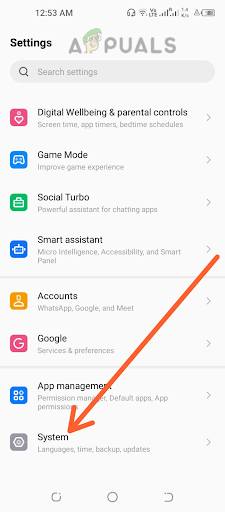
Tap on System - Select System update. This option may be labeled as a Software update or Download update on some devices.
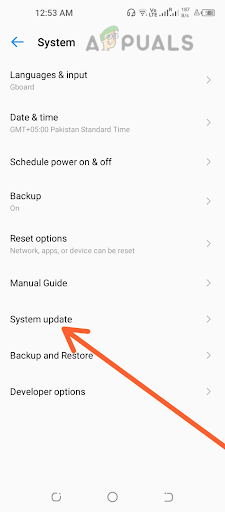
Go to System update - Click on Check for Update at the bottom right of the screen.
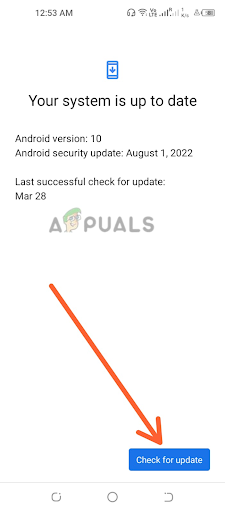
Click on Check for Update - Your device will now check for available system updates. If there are updates available, you will be prompted to download and install them. Follow the on-screen instructions to proceed with the download and installation.
- Once the update is downloaded and installed, restart your device.
- After your device has restarted, open the Play Store to check if the issue has been resolved.
4. Force Close and Reopen the Play Store App
Sometimes a temporary glitch prevents you from downloading any app or running the Play Store smoothly. Its immediate solution is to force close the Play Store app and reopen it. Force closing stops the app’s functionality completely in the background.
Here are the steps to close and reopen the Play Store on an Android device:
- Swipe up from the bottom of the screen and hold for a moment until the recent apps menu appears.
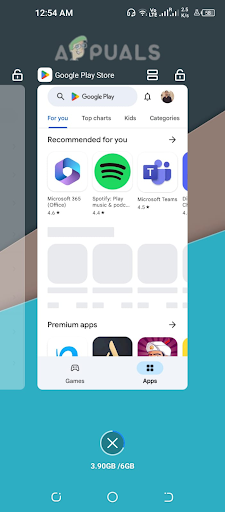
Swipe up from the bottom of the screen to open the Recent App menu - Find the Play Store app in the list of recently used apps.
- Swipe up on the Play Store app to close it.
- Return to your home screen or app drawer and find the Play Store app.
- Tap on the Play Store app to reopen it.
- Once the Play Store app has reopened, try to download or update an app to see if the issue has been resolved.
5. Restart Your Device
Restarting your device can often help resolve issues with the Play Store app. To restart your Android device, first press and hold the Power button until the Power off or Restart options appear on your screen. Tap on Power off or Restart depending on what you need. If you choose Power off, you’ll need to press and hold the Power button again until your device turns off completely.
If you choose ‘Restart,’ your device will automatically turn back on after a few seconds. Once your device has restarted, try opening the Play Store app again to see if the issue has been resolved.
6. Use VPN and Clear Cache and Data
Many users have reported that turning on the VPN, connecting it to the US server, and then clearing Google Play cache and data have worked to solve the issue. When the problem is regional, i.e., the Play Store server is down in your country only, people outside your country would be able to run Play Store perfectly fine. Therefore, you can also use the services by selecting a location other than your region.
Note: It’s important to note that clearing data for Google Play Services can have unintended consequences, such as resetting your location settings or wiping out saved data for other apps that rely on Google Play Services. So, make sure you’re comfortable with the potential impact before proceeding with this step.
First, Install and activate any VPN, then follow the steps given below to clear cache and data:
- Open your device’s Settings app.
- Scroll down and tap on App Management. If you don’t see this option, it may be located under the Device or Device settings section.
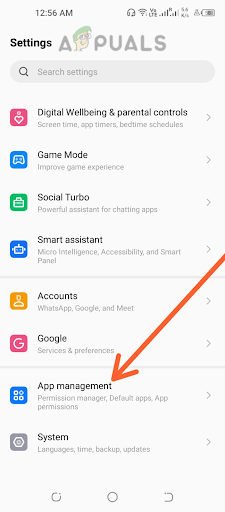
Go to App management - Tap on App Settings or See all apps depending on your device.
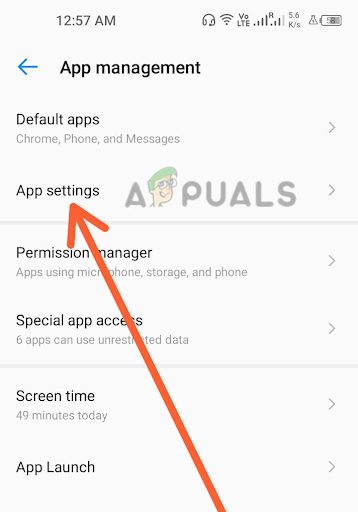
Tap on App Setting - Scroll down and find Google Play Services and Play Store. Tap on it to open its settings.
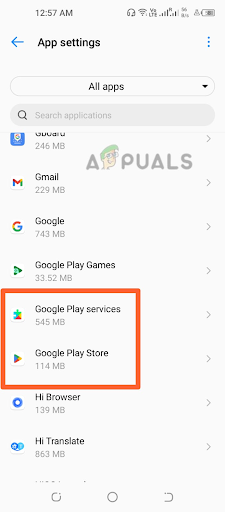
Tap on Google Play Services and Play Store to open the settings - Tap on Storage & Cache. Here, you’ll see the amount of cache and data used by the app.
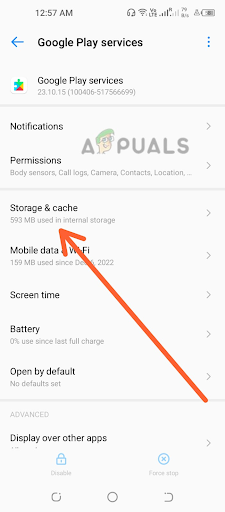
Tap on Storage & Cache - Click on Clear Cache to delete the temporary files stored by the app.
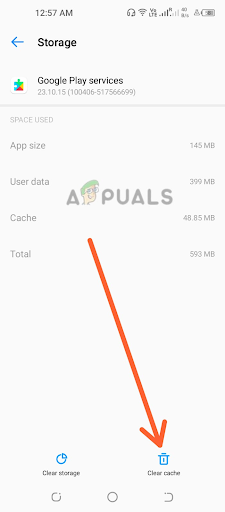
Click on Clear cache - If clearing the cache doesn’t help, tap on Clear Storage to delete all app data. This will reset the app to its default settings, so you may need to sign in again to any services that use Google Play Services.
- A warning message will appear, informing you that all data will be lost. Tap on Clear all data to confirm.
- Once the cache and data have been cleared, restart your device.
- After your device has restarted, open the Play Store app to see if the issue has been resolved.
7. Remove and Re-Add Your Google Account
Removing and re-adding your Google account can sometimes help resolve issues with the Play Store app, as it can refresh the connection between your device and Google’s servers. Here’s how to do it:
- Open your device’s Settings app.
- Scroll down and tap on Accounts or Users & Accounts.
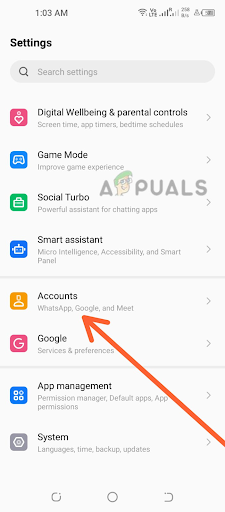
Go to Accounts - Tap on your Google account.
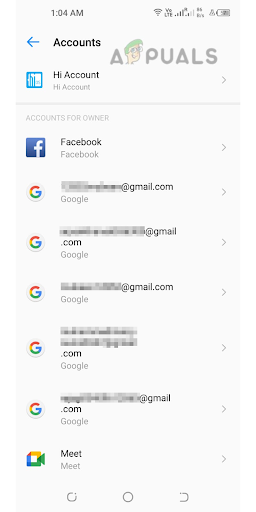
Tap on your Google account - Click on Remove account. A warning message will appear, informing you that removing the account will delete all its messages, contacts, and other data from the device.
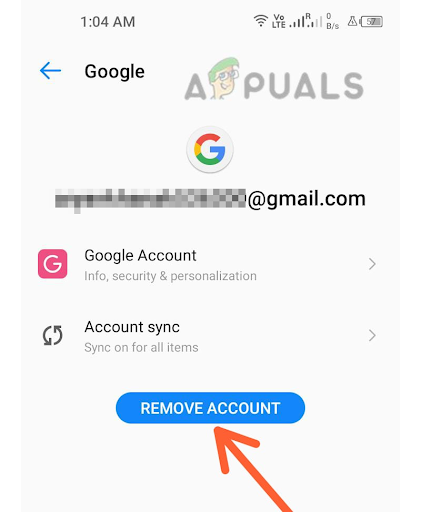
Click on Remove account - Press on Remove account again to confirm.
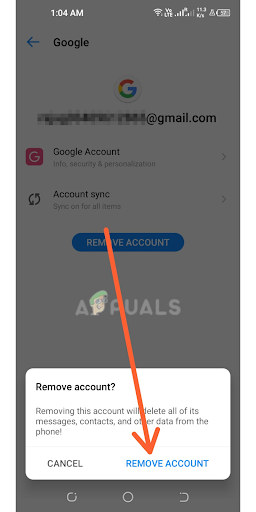
Hit the Remove Account button - Once the account has been removed, tap on the Add Account option and select Google from the list of account types.
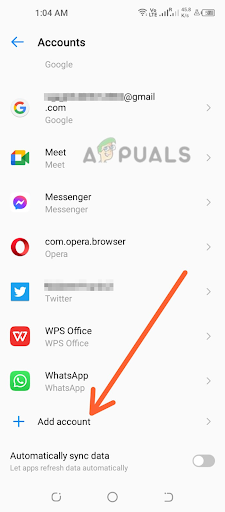
Tap on the Add account - Follow the on-screen instructions to sign into your Google account and add it to your device.
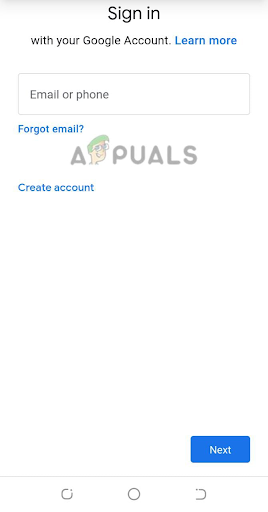
Sign in to your Google account - Once the account has been added, open the Play Store app to see if the issue has been resolved.
Note: It’s worth noting that removing your Google account will also remove any synced data, such as contacts, calendars, and emails, from your device. Make sure to back up any important data before removing the account.
The post PlayStore Won’t Open, Load or Download Apps? Here’s How to Fix appeared first on Appuals.com.


0 Commentaires